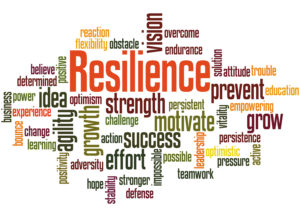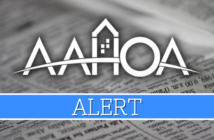Advocating for members has been job No. 1 throughout the coronavirus pandemic
by NICK FORTUNA
They’ve been described as heartbreaking, encouraging, and inspiring, but most important for the hotel industry, they’ve been impactful. The stories of hoteliers across the country struggling to stay afloat during the novel coronavirus pandemic have shown lawmakers and government officials the true resilience and determination of the hotel industry.
But they’ve also illustrated the importance of swift government action to aid an industry battered by the economic shutdown and the resulting recession. Through late May, AAHOA’s approximately 20,000 members had contacted federal, state, and local representatives more than 31,000 times, recounting the stories of businesses that went from thriving to writhing within a matter of weeks.
Those personal stories from constituents carry great weight with legislators and make it easier for AAHOA to advocate for its members, according to Chirag Shah, the association’s vice president of government affairs.
Some members have shared the pain of having to lay off long-tenured employees who felt like family, of paying hotel utility bills with personal credit cards, or of having to shut down operations completely. Others have shared stories of selflessness, having stepped up to provide meals for laid-off employees and their families, to produce personal protective equipment, or to provide housing for health care workers, first responders, and supply chain professionals.
When the economic hardship has a face and a name, legislators tend to take notice, Shah said. Members who have built relationships with their representatives over many years, combined with newly engaged members reaching out for the first time, have shed light on the unprecedented challenges facing the hotel industry and the need for action posthaste.
“The responses from congressmen – they’ve just been blown away,” Shah told members May 20 during an online legislative update. “In a lot of cases, they have never run a small business, so the personal stories of our members have been particularly important. That’s why our message has been resonating. They’re responding very positively to our industry.”
Early in the pandemic, AAHOA provided letter templates on its website to make it easier for members to contact their legislators, and members responded in a big way, sending more than 21,000 letters in the first week alone.
Cecil P. Staton, AAHOA’s president and chief executive, said he was heartened by the overwhelming response. A former state senator in Georgia, Staton wants members to know that when important constituent groups speak with a unified voice, they can have a big impact on legislative initiatives.

Resilient Ferns Growing Through Rock

“We really must do more to make our voices heard as an industry,” Staton said. “Without your voice, without your story, [legislators]are flying blind when it comes to helping the hospitality industry weather this storm. It’s critical that hotel owners participate in the government affairs process and play an active role in shaping the post-COVID-19 economic landscape.”
Evaluating the federal response
In March, AAHOA advocated for and praised the passage of the CARES Act, which created the Payroll Protection Program (PPP) and expanded the Economic Injury Disaster Loan (EIDL) program, both administered by the Small Business Administration. The following month, industry groups lauded the Paycheck Protection Program and Health Care Enhancement Act, which replenished PPP funds after they had run out within two weeks of the program’s launch.
But AAHOA and other hospitality groups – including the American Hotel & Lodging Association, National Association of Black Hotel Owners, Latino Hotel Association, and state lodging associations – all stressed the need to provide more liquidity to hotels. The industry groups would like PPP funding extended through year’s end. As of May 23, the PPP had only approximately $150 billion remaining, with the SBA having approved $511 billion in PPP loans, according to Forbes.
AAHOA and its industry peers have expressed frustration with the maximum size of PPP loans, which are limited to the lesser of $10 million or 2.5 times a business’ average monthly payroll costs. Increasing that limit in a future stimulus bill is a priority for the association, Shah said. Other policy goals include:
- Extending the eight-week window in which hoteliers must use PPP funds
- Lowering the percentage of PPP funds that must go toward payroll from its current level of 75 percent
- Pushing back the June 30 deadline to rehire workers in order to get PPP loan forgiveness
- Shoring up the market for commercial mortgage-backed securities, which account for approximately one-third of all U.S. lodging-industry debt, or roughly $86 billion
- Tax credits to incentivize travel once it becomes safe
- Civil liability protection in the event that a guest or employee contracts COVID-19
- Requiring business-interruption insurance to cover losses stemming from government-ordered shutdowns
- Extending eligibility for PPP loans to destination marketing organizations such as convention and visitors bureaus
“Our DMOs need those dollars because they’re small businesses just like any other,” Shah said. “It’s going to be harder to recover if our DMOs aren’t strong, so we’re pushing that as a travel industry priority.”
The stimulus bills have increased EIDL funding by $20 billion, an insufficient amount given the scope of the economic downturn, Shah said. Further, the lack of manpower at the SBA has made applying for aid an onerous process.
“We know that a lot of members have been applying for these programs and don’t hear back for weeks or months on end,” he said. “In other cases, they may have gotten some portion of it, like the $10,000 grant through the EIDL, and then they never hear back again. That’s just a fundamental flaw in the process, largely because the volume is something that the SBA has never seen before.”
State and local governments
AAHOA has been engaged with state and local governments throughout the pandemic, initially working to ensure that hotels could stay open as essential businesses and to get them quick access to capital. As states began to reopen in May, the team advocated for liability protection, direct financial aid, and tax flexibility for hoteliers.
AAHOA reached out to state and local government officials to educate them about the critical role hotels play in providing housing. Many low-income families and individuals rely on budget hotels for housing, and during the pandemic, some health care and supply chain workers began staying in hotels to avoid bringing COVID-19 home to their families.
Kate Siconolfi, AAHOA’s director of state and local government affairs responsible primarily for the eastern U.S., said it was important to highlight the extensive cleaning and sanitation procedures in place at hotels.

“In nearly every state, we were able to keep hotels deemed essential, with restrictions,” Siconolfi said. “That was the No. 1 thing we worked on, the top priority. It was important for governors and state and local officials to know about the great work your businesses are doing to make sure your doors are open.”
AAHOA urged governors to issue disaster declarations early in the pandemic, making their states’ small businesses eligible for the EIDL program. Since then, however, states have been limited in their ability to respond, with at least 14 states having suspended their legislative sessions, Siconolfi said. Some states are considering online “virtual” sessions, while others are scheduling special legislative sessions for later this year.
Another hurdle has been the dire financial health of states, according to Eric Reinarman, AAHOA’s director of state and local government affairs responsible primarily for the western U.S. State and local governments are expecting tax revenues for the second quarter to be down 15 percent to 20 percent. The large budget shortfalls have many lawmakers calling for federal aid to state and local governments – anywhere from $300 billion to $1 trillion – in the next stimulus bill, Reinarman said.
“It’s pretty dramatic what we’re seeing in terms of revenue at the state level,” he said.
Up to $535 billion of the $3 trillion in federally appropriated stimulus funding has been earmarked for state and local governments, and AAHOA is working to ensure that hoteliers get their fair slice, Reinarman said. Some battles are easier than others, however.
Guidance from the Department of the Treasury prohibits states from using aid to cover shortfalls in property taxes, for example, an important issue for hoteliers. Though AAHOA has been pushing to change those guidelines, Reinarman said, “It’s difficult. It’s tough sledding.”
At least 41 states are allowing small businesses to defer tax payments without interest through July 15 or later this summer, and many local taxing districts are waiving late fees and penalties on property taxes, Reinarman said. In addition, at least 23 states have offered direct financial relief such as grants or loans to small businesses.
“We’re seeing that you can defer your property taxes [in many cases],” he said. “Unfortunately, we’re not seeing a great appetite for forgiveness, although we’re still pushing for that. One trend we are seeing are loan programs especially designed for the hospitality industry, which is good. We need more of them.”
Reinarman said he was pleased to see several states enacting liability shields for small businesses like hotels in the event that a guest or employee contracts COVID-19. The bills passed in Utah and North Carolina and that are under consideration in many other states would protect hotels in all cases except those of extreme negligence, he said.
“What we’re worried about is preventing a new wave of drive-by lawsuits as states open, similar to the [Americans with Disabilities Act lawsuits],” Reinarman said.
The road ahead
Staton said hoteliers and their employees are especially vulnerable to sharp economic downturns and public health crises because they feel the effects first and deal with them the longest. A virtual shutdown of air travel and the cancellation of major events nationwide impacted hotels right away, and it likely will be months before a frightened public can make travel plans with confidence.
However long it takes to return to prosperity, AAHOA will be hard at work for members, Staton said. In addition to its legislative advocacy, AAHOA has been in constant contact with hotel brands and online travel agencies since the start of the pandemic, seeking the relaxation of brand standards, a reduction and postponement of royalty fees, and lower commissions for OTAs. Every concession helps, though the challenges facing hoteliers remain daunting.
“AAHOA has been working double time since COVID-19 began,” Staton said. “Unfortunately, many hotels have closed during this crisis, but AAHOA has not closed. In fact, our members need us now more than ever, and we’re committed to working on your behalf. We want you to know that AAHOA is here for you. We are here to serve our members. We thank you for your engagement and involvement.
“This is a resilient industry, you are resilient as hoteliers, and we’re going to get through this together.”



